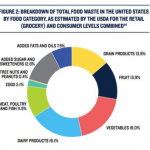The Business Of Fasting
A friend of mine recently tried the 5:2 Diet—in which you consume 500 calories two days per week but eat normally the other five days. “It sucked,” she says. “I didn’t feel any mental clarity, I felt weak and confused. It was also awkward socially because you can’t really do anything on those days. You just want to go to sleep and have the day be over.”
But it probably made her healthier. While many diet or body-hacking fads are backed by dubious science at best (see coconut oil pulling), the trend of fasting to improve mental capacity and increase longevity—not to mention lose weight—is grounded in legitimate and fascinating scientific principles. The benefits of intermittent fasting or extreme calorie restriction range from improved insulin sensitivity to reduced inflammation to the growth of new brain cells. Fasting is reported to shrink cancerous tumors, delay aging, and stave off the chronic diseases that accompany it, including heart disease, diabetes, and possibly even dementia.
But fasting is also really really hard. Even aging researcher and fasting expert Eric Verdin admitted that calorie restriction can be challenging and disruptive to domestic life.
“I never felt better than when I was on it, but it takes a lot of discipline, especially when you’re busy at work,” says Verdin, who is president and CEO of the Buck Institute for Research on Aging. “It’s also totally asocial. Everything is dictated by the diet. Living with a family and saying no to dinner is hard.”
Fortunately, as with any hot trend, companies have sprung up to make fasting easier or even unnecessary. And it’s becoming big business. Hundreds of diet and recipe books targeting everyone from beginners to body builders are available on Amazon. There’s even a subset of fasting literature aimed at devout Christians.
The first calorie-restriction meal delivery service also launched last year. Developed by gerontologist Valter Longo at the University of Southern California, the ProLon Fasting Mimicking Diet offers you five days’ worth of soups, teas, and bars totaling 800 daily calories for just $299.
Joseph Antoun, CEO of L-Nutra—the company that produces ProLon—says that the diet provides you with essential vitamins and nutrients without triggering the body’s food-sensing pathways so that it remains in fasting mode. L-Nutra recently published their first clinical trial demonstrating the diet’s metabolic and anti-aging effects, which they say comes from an increase in stem cell production.
Not into not eating? Academic scientists, biotech startups, and pharmaceutical companies—including Novartis—are also trying to replicate the benefits of fasting with drugs and nutritional supplements.
If you are considering dramatically changing your diet through fasting or calorie restriction, you should probably speak with your doctor first. And you should definitely consult them before taking any nutritional supplements or off-label prescription medications. But if you want to know how it works, read on.
Fasting forces your body to rely on alternative sources of energy. Ordinarily, your cells get their energy from glucose that is stored in your liver and replenished every time you eat. However, if you can go more than 12 hours without eating, glucose stores are depleted, and your body starts to produce other sources of energy in their place.
It turns out that many of these cellular energy pathways are protective against aging, and it is this effect that drug and supplement companies are trying to manufacture. The four main pathways being targeted are NAD, autophagy, AMPK, and ketone bodies, all of which are triggered by fasting.
NAD
The most promising dietary supplement may be NR (nicotinamide riboside). NR is a precursor to the molecule NAD (nicotinamide adenine dinucleotide), which is produced during fasting and is critical for cellular metabolism. NAD also protects against DNA damage, making it a favorite among the anti-aging crowd. Levels of NAD decline with age, and fasting is one way to replenish them; NR supplements are another.
NR is produced by the chemical company ChromaDex under the name Niagen and sold to companies like Elysium Health, who then package it in a supplement they sell under the brand name Basis (you can read more about their supplement here). ChromaDex also provides NR to labs conducting research with the compound.
A recent clinical trial showed that NR does indeed increase levels of NAD in the body, and follow-up studies are planned to test its efficacy on various biomarkers of aging. ChromaDex CEO, Frank Jaksch, told me that, ultimately, their goal is “to move the needle on age-related diseases” rather than a have a straight-line impact on longevity.

Autophagy
One problem that occurs in many aging-related chronic conditions, whether it’s diabetes, cardiovascular disease, or Alzheimer’s disease, is the buildup of proteins in affected tissues. Normally, cells remove these proteins and degrade them through a process called autophagy. But autophagy is inhibited in response to high levels of energy and nutrients.
“A couch potato-type lifestyle will result in an impaired ability of cells to remove the molecular garbage,” says neuroscientist and master-faster Mark Mattson, PhD, a professor at the National Institute on Aging. “Fasting is very powerful at stimulating [autophagy and helping] cells to remove molecular garbage.”
Several pharmaceutical companies are working to develop drugs that induce autophagy. One contender, rapamycin, has been shown to extend lifespan by as much as 30% in mice and dogs. But rapamycin has some serious potential side effects, as the drug strongly suppresses the immune system (it’s currently prescribed to prevent organ transplant rejections).
AMPK
The first clinical trial for a fasting-mimicking, anti-aging drug—the type II diabetes medication metformin—was recently approved by the FDA. Metformin tricks the body into thinking it’s fasting by suppressing glucose production in the liver. It does so partly by activating the protein AMPK (adenosine monophosphate-activated protein kinase), which is thought to increase both NAD and autophagy.
Scientists at the Albert Einstein College of Medicine are testing metformin’s anti-aging effects on gene expression in older adults. Previous studies indicated that the drug could prevent cardiovascular disease and cancer, and expectations for the new trial are high.

Ketone Bodies
Finally, fasting also causes the liver to produce molecules called ketone bodies, which serve as a potent energy source, particularly in the brain. There, they help promote the growth of new neurons and strengthen the connections between existing neurons to improve learning and memory.
Ketones may also improve muscle performance, and message boards for body builders and endurance athletes are rife with self-experimentation and testimonies to the metabolites. You can currently buy so-called “exogenous ketones” online, but there are no empirical studies showing that these supplements work, and word is they taste like gasoline.
Verdin’s lab is trying to produce small molecules that mimic ketone bodies, and early studies have yielded encouraging results. However, he cautioned that although the field is promising, much of the research on mimicking fasting is preliminary. Most of the academic work has been done in animals, not humans, and the supplements on the market aren’t approved by the FDA, meaning they may not have been tested at all. Right now, he recommends fasting over taking a supplement.
That being said, Verdin acknowledges that if a safe and effective compound existed, “It would be much better to take a nutritional supplement that would help you than it would be to fast. We’re at the stage where we think we know how to do this, but we have to prove that it works.”
Mattson, who practices time-restricted eating—a fasting alternative in which you only eat during a six-hour window every day—takes a more cynical view of the field.
“Fasting is perfectly safe, whereas I always have concerns about taking a drug,” he says. “The thing with fasting is that nobody makes any money off it. That’s why you have companies [saying] they can mimic some or all of the beneficial effects of fasting.”
From a financial standpoint, the choice seems obvious: Not only is fasting free, it will actually save you money by not spending so much on food. But from a lifestyle perspective, are a few extra healthy years later in life worth feeling miserable a few days every month now?
Correction: An earlier version of this story mischaracterized the way Elysium Health markets its supplement, the story has been updated.
Fast Company , Read Full Story
(35)














